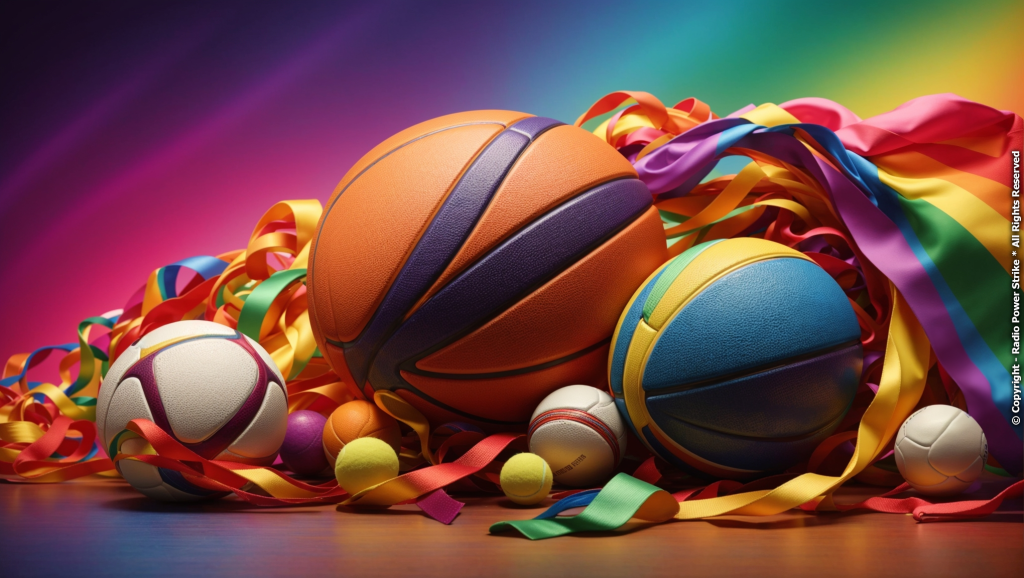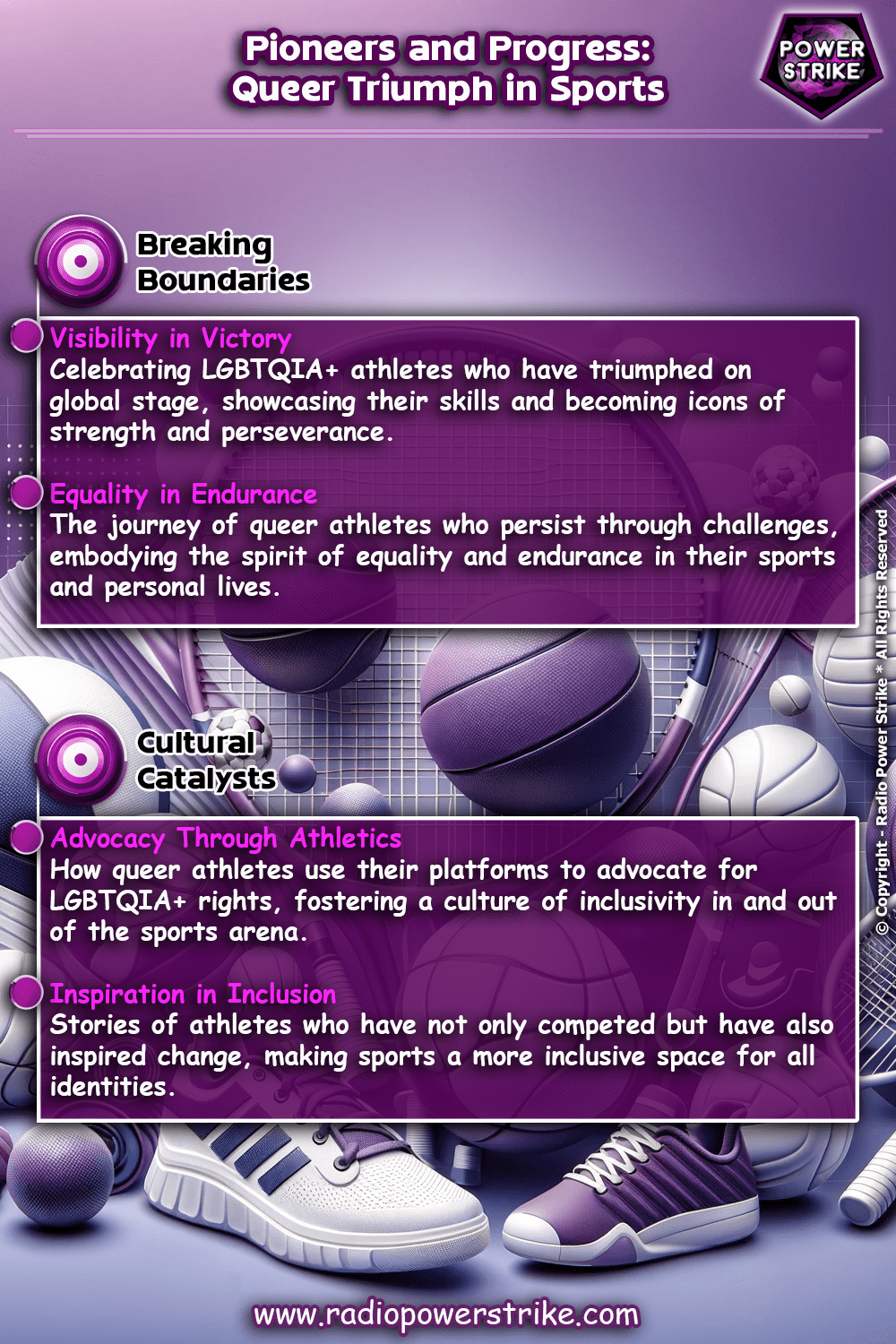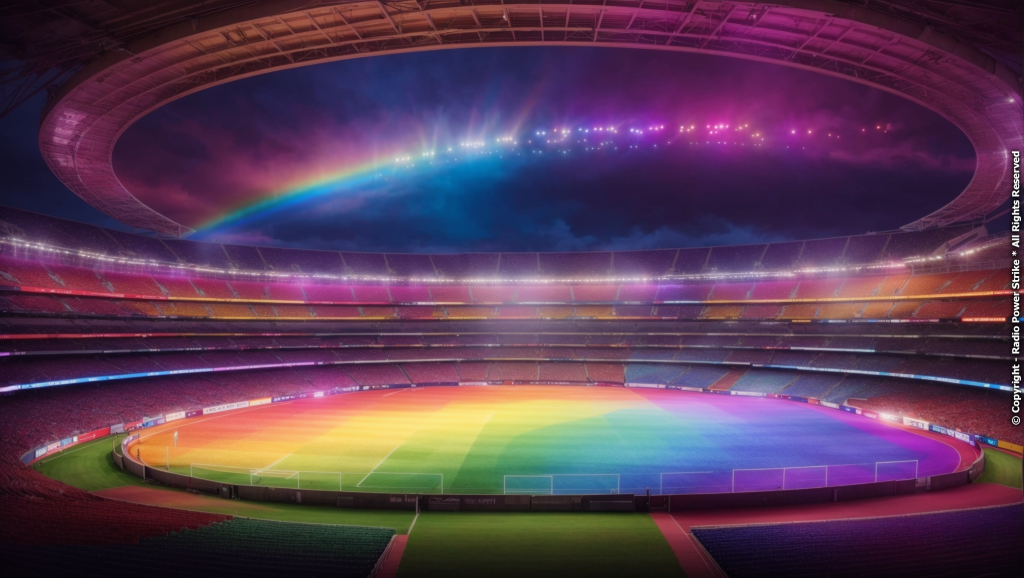Queer in Sports: Breaking Barriers and Redefining Athlete Culture
The Rise of LGBTQIA+ Athletes and the Evolution of Sports Culture

The world of sports, often seen as a bastion of traditional values, has witnessed a transformative shift with the rise of LGBTQIA+ athletes. These athletes, with their talent and tenacity, are not just breaking records but also barriers, challenging long-held stereotypes, and redefining what it means to be an athlete. This article delves into the journey of queer representation in sports and its profound impact on athlete culture.
Challenging Stereotypes and Norms
Historically, the sports arena has been dominated by heteronormative ideals. LGBTQIA+ athletes often faced prejudice, discrimination, and the pressure to conform. Coming out was fraught with risks, both professionally and personally. However, as society evolved, so did the world of sports.
Trailblazing athletes like Billie Jean King, Jason Collins, and Megan Rapinoe have paved the way for future generations. Their courage to be authentic, both on and off the field, has challenged and changed perceptions. Their stories have highlighted the struggles and triumphs of being queer in sports, inspiring many to embrace their true selves.
The visibility of these athletes has been instrumental in challenging stereotypes, proving that talent knows no gender or sexual orientation. Their achievements have debunked myths and showcased that LGBTQIA+ athletes can excel at the highest levels.
Redefining Athlete Culture
The inclusion of LGBTQIA+ athletes has led to a broader redefinition of athlete culture. Locker rooms, once considered challenging spaces for queer athletes, are slowly transforming into inclusive environments. Teams and sports organizations are recognizing the importance of diversity and are implementing policies to ensure inclusivity.
Initiatives like Pride Nights, rainbow jerseys, and allyship campaigns have become more common, signaling a shift towards acceptance. Sports brands, too, are joining the movement, endorsing LGBTQIA+ athletes and launching campaigns that celebrate diversity.
This cultural shift is not just limited to professional sports. Schools and colleges are fostering environments where young LGBTQIA+ athletes can thrive without fear of discrimination. The message is clear: Sports is for everyone, irrespective of one’s gender identity or sexual orientation.

The Impact of Queer Representation
The rise of LGBTQIA+ athletes has had a profound impact beyond the sports arena. Their visibility has provided representation for countless LGBTQIA+ individuals, showing them that they too can achieve greatness. For many young queer individuals, seeing someone like them excel in sports offers hope and inspiration.
Moreover, these athletes have used their platforms to advocate for LGBTQIA+ rights, raising awareness about issues faced by the community. Their voices have resonated, leading to broader societal conversations about acceptance, equality, and love.
The presence of queer athletes has also educated and enlightened many, dispelling misconceptions and fostering understanding. Their stories of resilience, determination, and success serve as powerful narratives, reshaping the discourse around LGBTQIA+ individuals in sports and society at large.
The journey of LGBTQIA+ athletes in the world of sports is a testament to the power of authenticity, determination, and resilience. As they break barriers and redefine athlete culture, they pave the way for a more inclusive and accepting future. Their impact extends beyond the field, inspiring and influencing generations, and leaving an indelible mark on the fabric of society. The narrative of sports is changing, and at its heart is the rainbow flag, flying high and proud.


Comments are closed, but trackbacks and pingbacks are open.